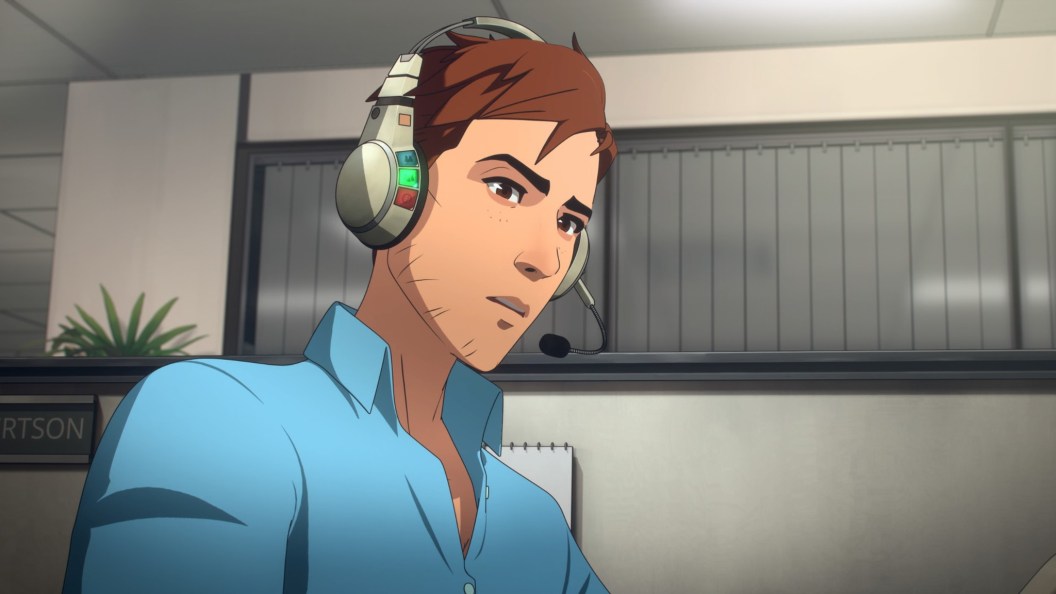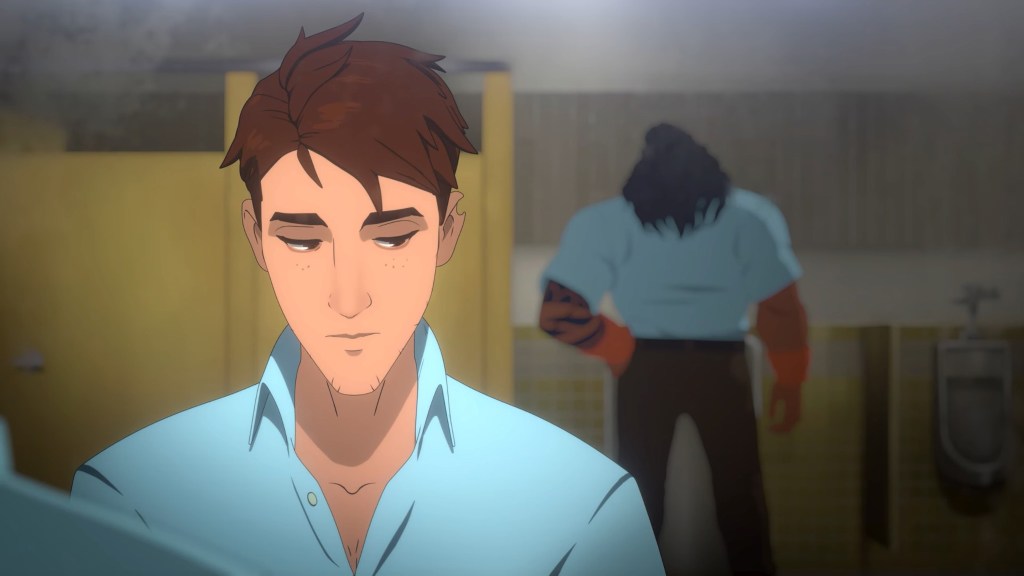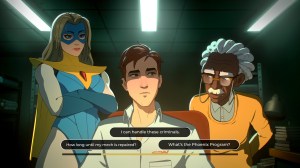
If you’ve heard of Dispatch, the new choices-matter visual novel created by veterans from Telltale games, you might already be excited over the game’s star-studded cast of voice and television actors and YouTube stars. Breaking Bad star Aaron Paul is not the only thing to get excited about in this upcoming game, however, as after getting my hands on Dispatch‘s free demo, it quickly became clear to me that the game wasn’t like the others in its genre. In fact, Dispatch just might redefine visual novels going forward, creating what you can easily call a cinematic experience in gaming.
If you’re not in the loop, Dispatch is an upcoming visual novel where your choices define story progression. Very similar to titles in the genre popularized by Telltale games, this title is the debut project of indie studio AdHoc and was developed by some of the writers and directors of Tales from the Borderlands and The Wolf Among Us. It tells the story of a washed-up superhero who now works as a dispatcher at an agency hoping to rehabilitate super villains, creating a kind of comic-booky workplace comedy set in an alternate Los Angeles. The game’s star-studded cast contains Aaron Paul from Breaking Bad, Matthew Mercer of Critical Role fame, and even YouTubers such as Jackscepticeye, alongside a host of other incredible talents, which can make reading the game’s credits a bit intimidating.
That on its own might be enough to get you interested in Dispatch. Heck, it was enough to get me excited. However, actually getting into the game’s free demo (which you can play right now yourself) came with an added surprise; I did not, nor could I have possibly expected, just how good the animation in Dispatch would be.
To some, that sounds like kind of a no-brainer statement. Tales from the Borderlands and The Wolf Among Us both had great animation for a visual novel game, especially when they each came out. There’s that big caveat, though: great animation for a game. Dispatch doesn’t just have great animation for a game; it has incredible animation that could easily rival anything streaming or airing on that archaic video box we call television.
The smoothness of the animation in Dispatch left me gawking as I analyzed every subtle expression on the characters’ faces. As someone with pretty severe ADHD, I hardly have the patience to finish even my favorite games, so it should say something that I went back multiple times in Dispatch‘s demo to catch all the tiny details my eyes missed the first time around, alongside all the different outcomes of my character’s choices.
It isn’t just that Dispatch has incredible animation, but that the developers have managed to take the game’s animation and seamlessly introduce player choice to it. At every juncture at which players have the option to make a decision, the animation doesn’t simply slow down to a grinding halt and have the characters in a scene stare at each other as the player waits to make their choice. Instead, these decisions are seamlessly baked into the animation so that you are selecting an option that decides the next scene before that scene is even played. If the player fails to make a choice, one of the options is picked for them and that scene is then played.

It might not sound all that impressive just from reading, but in the game itself, it can be almost stunning how seamlessly the game ties together different scenes based on your choices, especially when it does so without cutting the camera. I can name at least one instance in the demo where Aaron Paul’s character can be made to do two completely different actions without the camera ever cutting from a close-up of his face. All of this comes together to create what feels less like a game and more like you’re watching a show that somehow, impossibly, responds to your choices.
While Dispatch‘s cutscenes feel like they were created with an animation budget, these scenes, of course, don’t make up the entire game. Much of the gameplay is played with the perspective of a computer screen, as you, as the title suggests, dispatch heroes to different crime scenes. Decidedly under animated, I can only hope that these scenes don’t make up too much of the actual screen time in Dispatch, and that the strengths the game shows off in its free demo — incredible, seamless animation that redefines the choices-matter visual novel genre — aren’t just a minute aspect highlighted by the demo.
The post Dispatch May Change The Game For Visual Novels appeared first on ComicBook.com.


